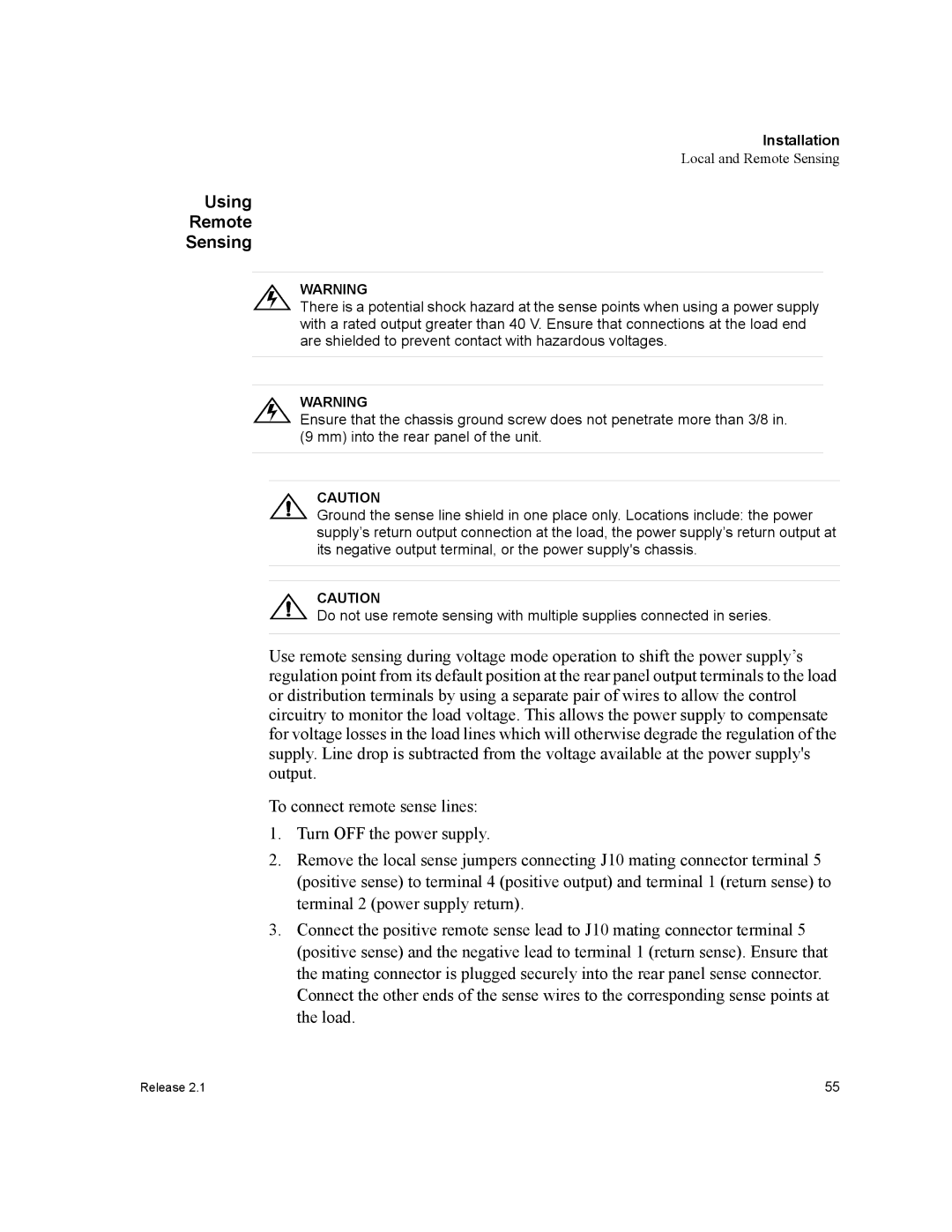
Installation
Local and Remote Sensing
Using
Remote
Sensing
WARNING
There is a potential shock hazard at the sense points when using a power supply with a rated output greater than 40 V. Ensure that connections at the load end are shielded to prevent contact with hazardous voltages.
WARNING
Ensure that the chassis ground screw does not penetrate more than 3/8 in. (9 mm) into the rear panel of the unit.
CAUTION
Ground the sense line shield in one place only. Locations include: the power supply’s return output connection at the load, the power supply’s return output at its negative output terminal, or the power supply's chassis.
CAUTION
Do not use remote sensing with multiple supplies connected in series.
Use remote sensing during voltage mode operation to shift the power supply’s regulation point from its default position at the rear panel output terminals to the load or distribution terminals by using a separate pair of wires to allow the control circuitry to monitor the load voltage. This allows the power supply to compensate for voltage losses in the load lines which will otherwise degrade the regulation of the supply. Line drop is subtracted from the voltage available at the power supply's output.
To connect remote sense lines:
1.Turn OFF the power supply.
2.Remove the local sense jumpers connecting J10 mating connector terminal 5 (positive sense) to terminal 4 (positive output) and terminal 1 (return sense) to terminal 2 (power supply return).
3.Connect the positive remote sense lead to J10 mating connector terminal 5 (positive sense) and the negative lead to terminal 1 (return sense). Ensure that the mating connector is plugged securely into the rear panel sense connector. Connect the other ends of the sense wires to the corresponding sense points at the load.
Release 2.1 | 55 |
